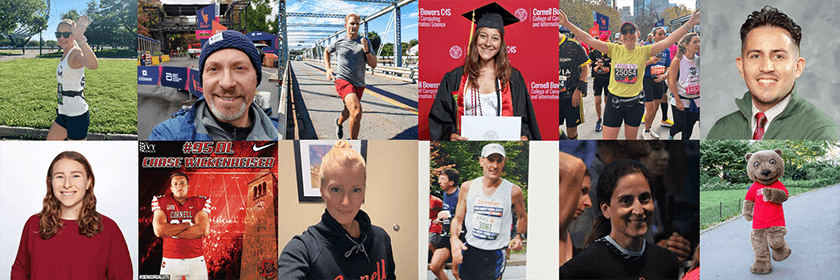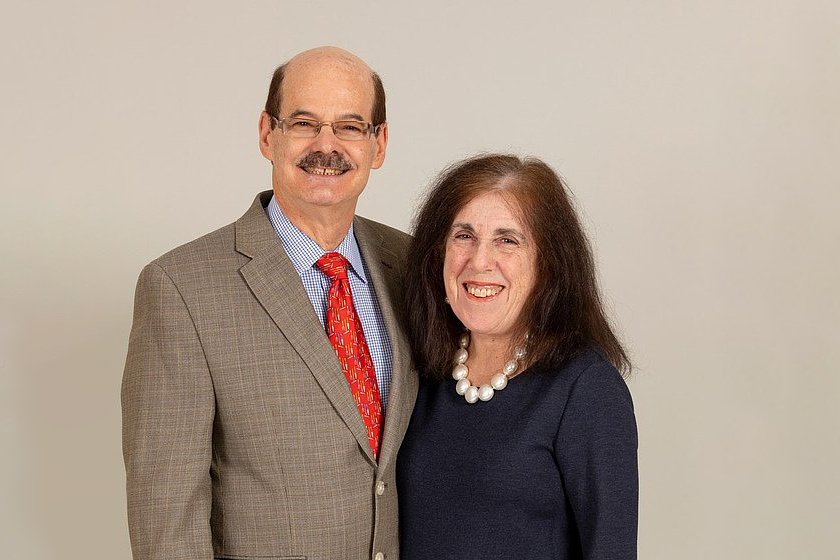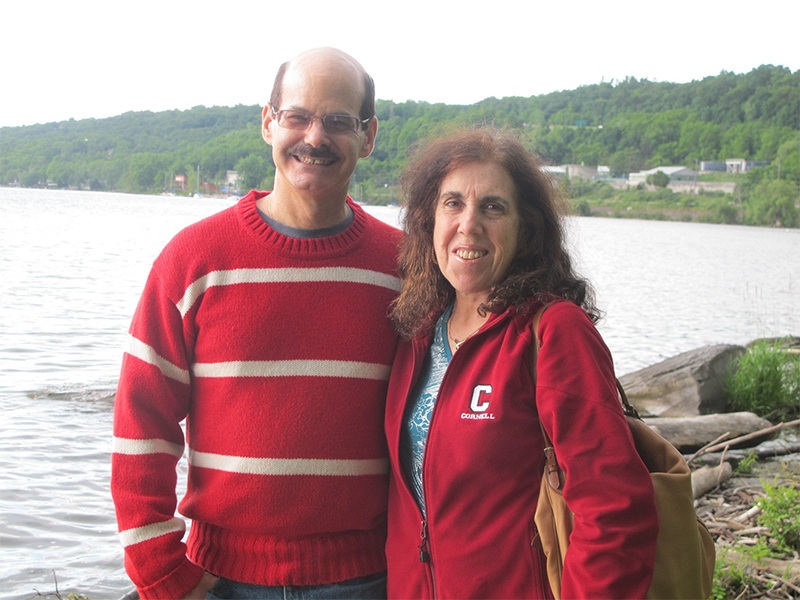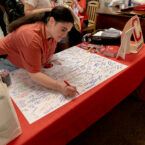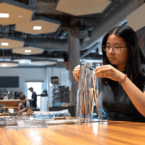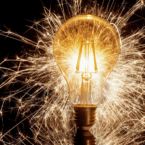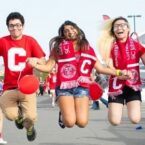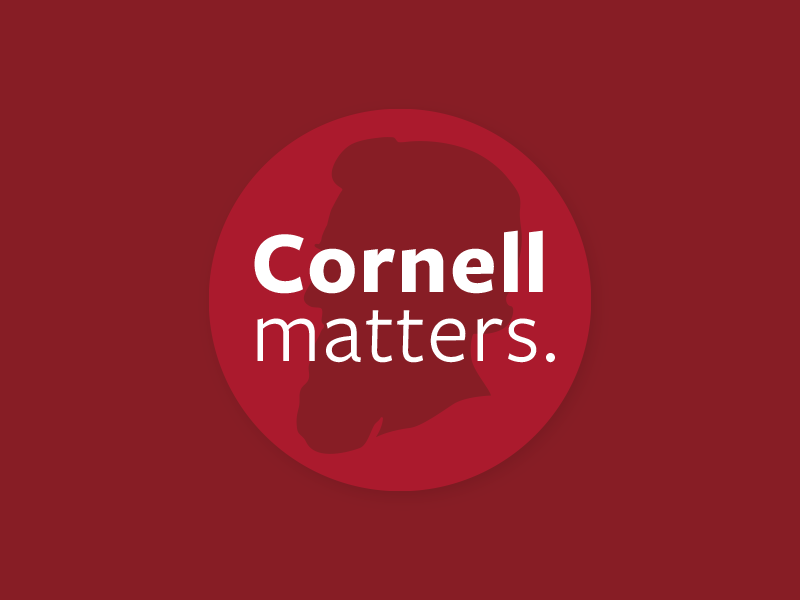Fellow volunteer Paul Cashman ’73 interviewed Jonelle Bradshaw de Hernandez ’96 to find out more about why she volunteers, what motivates her, and how her Cornell experience shaped her life.
Jonelle’s alumni activities and positions:
- CACO, delegate-at-large, vice president for diversity and inclusion
- Dance alumni
- 10th Reunion Campaign Major Gifts Committee member
- Cornell University Council committee member
- Class of ’96 Class Council
- Cornell Alumni Advisory Board member
- Cornell Alumni Association, director-at-large
- Cornell Black Alumni Association, past president
- Cornell Mosaic Executive Committee member
- Cornell University Council vice-chair, member, member at large
- SAS Advisory Council member
Paul Cashman ’73: Cornell is a big place. How did you find your corner of the university or your community?
Jonelle Bradshaw de Hernandez ’96: I think the first thing was through the pre-freshman summer COSEP, because I came to Cornell the summer before my freshman year. This was a volunteer program for students of color to come and get to know the university, and from that summer I met some of my best friends from Cornell. That was solidified through the College of Human Ecology. I felt like my corner of the world really centered on human ecology, particularly in my work study job in the admissions office that became the central part of my Cornell University experience and still continues today. When I moved to Texas, a little less than two years ago, I knew people from Texas who were part of that freshman year summer that I reconnected with immediately and have had dinner with, it was like no time had passed.
I was able to take advantage of a lot of things across the university. I think one of the best things that I did was to complete a concentration in Architecture, Art and Planning. During that time, I met a friend of mine. We used to get into wonderful debates in my freshman year, and I didn’t know her very well, but my senior year she ended up being in my class and we became best friends. I was a bridesmaid in her wedding and she was a bridesmaid in mine and so that, outside of the College of Human Ecology, being in a school that was very different from my major was another big part of my life when I was at Cornell and has since continued to this day.
What was it like for you as a Black student or Black woman at Cornell and in those years in the mid ’90s?
This is a very interesting experience, especially when we look at it from the lens of what’s happening in our society today. It wasn’t much different. You know, when I was in high school, the Rodney King situation happened and the LA uprising happened during that time. When I got to Cornell, there was a lot of tension among some of the Ivy League schools around affirmative action and admissions. There are a couple of publications among the Ivy League schools that were very hurtful in terms of what they were saying about Black students and the Ivy League experience. But I took a lot of comfort in knowing that there were generations of people before me at Cornell who looked like me, who sort of paved the way. This moment in a place where I knew I belonged was uncomfortable, but I didn’t have to fight for it. Being a Black student sometimes meant being doubted by others. But surprisingly, and I can reflect upon this in 2020, years later, it was also a time where I recognize the amazing faculty. I was told all my life, “You should stick with the social sciences,” even though I love math and science. I had a math professor at Cornell who was a woman. And she came up to me after class and she said, “You know, you’re really good at this, you should stick with this.” Now I can see that 20 years later, as an educator myself, she made a point to come and tell me, “You’re good. And you belong here, and you can do this,” where all of the years beforehand, I was always told something very different. I personally believe that those wonderful seeds by those faculty members gave me the confidence to continue to move forward with my education even post-Cornell and to eventually get a PhD in engineering. So that moment was, I think, a white woman faculty member saying “I’m going to step out of my zone here and tell this person that they’re good.” So even though there was a lot of tension, I can tell that there was a lot of good being done too.
What is the tie that binds you now to the university?
I started volunteering with Cornell from the day I left and graduated from the university. I was asked to chaperone the bus from New York City to Ithaca with minority students for the recruiting for the minority hosting weekend. My volunteer work experience clearly kept me connected to the university. It was a pleasure to serve for 20 plus years in those roles, only because I feel like I got so much from my Cornell University experience. I talk about it all the time. And I know it helped me to change the trajectory of my life and my family’s life.
How has your experience as a Cornell volunteer affected other areas of your life, professional, volunteer, otherwise?
Well, I think that my volunteer experience was a service. There was no agenda to it, except to serve. When I started and then maybe the midpoint of my volunteer experience, I recognized that what I was doing at Cornell was helping me with professional development. Serving on boards, leading meetings, facilitating conversations, being in very difficult political conversations where we had to use diplomacy and openness and thoughtfulness and thinking about the role of the university as opposed to our personal goals—all of those things definitely helped me to grow as a professional. There’s a saying that iron sharpens iron, and Cornell people still are the most fascinating people in my world. I think they in a way sharpened my game and made me aspire more at all times, so then the Cornell volunteer experience became something that I needed. It wasn’t just in service anymore. It became that thing that made me better and sharper and more focused.
One of the reasons why I wanted to continue to serve is because I was clearly that student of color who did not have additional dollars to take advantage of these great opportunities that Cornell had to offer. There are lots of students who are vulnerable. But they are able to take advantage of that Cornell experience and the only time that I was able to say, you know, no to a formal role, including really prestigious ones was because I felt like, in four years, you can never do everything that Cornell has for you. And now after maybe a quarter of a century, I haven’t done everything but I’m okay with trying some other things for a little while until I circle back in. You know, I just knew the privilege that was in front of me.
What has been your proudest moment as a Cornelian?
The pride comes from the fact that I know that Cornell is going to live in perpetuity. And I’m just one cog in the machine that can help continue to push it forward and to have them think about students who were like me 16 and 17, bright-eyed and bushy-tailed, to come. But it was my proud moment to know that this institution lives beyond me. And that I was able to do just a little bit, just to move that needle forward, saying that there are so many other people who are coming after me. That just even lifts me higher. So the pride comes from, I feel like I’ve done my volunteer job.
Who or what inspires you?
There are so many different stories, even around this COVID situation. To tell you the truth, I can name the big names, but it’s the everyday people, you know. It’s the people who are just getting up every day and putting on their mask and driving the bus and being at the grocery store and the healthcare workers. I mean, I’m watching my Cornell friends, in their late 20s and early 30s and now they have the fancy titles and they’re in the journals and I’m so proud of them back on the floor of the hospitals just trying to save lives. Takes a certain type of person to do that. So, so many people, it is the everyday person who’s still making it.

